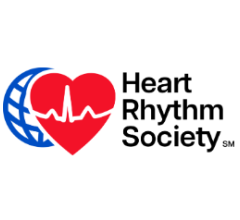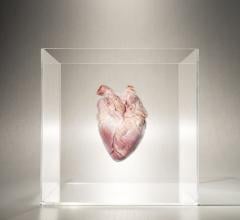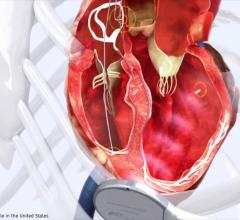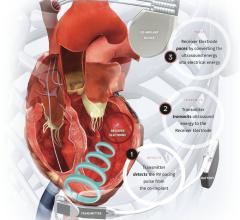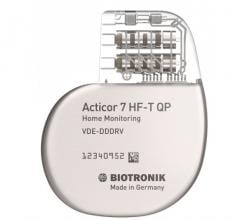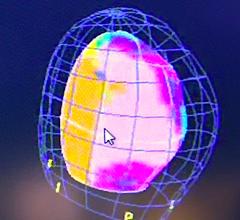
May 11, 2012 — St. Jude Medical Inc. announced U.S. Food and Drug Administration (FDA) approval of its Assura portfolio of implantable cardioverter defibrillators (ICDs) and cardiac resynchronization therapy defibrillators (CRT-Ds). The new implantable defibrillators feature SecureSense RV Lead Noise Discrimination, an algorithm that expands the St. Jude Medical ShockGuard technology and offers advanced sensing options designed to reduce the incidence of inappropriate shocks for patients with these devices.
“The Assura product portfolio offers new features that protect patients from unnecessary defibrillation therapy,” said Mark A. Coppess, M.D., at the Stern Cardiovascular Foundation in Memphis, Tenn. “The SecureSense RV Lead Noise Discrimination algorithm is important because it provides a way to distinguish over-sensing due to lead issues from real episodes that warrant life-saving treatment.”
The SecureSense RV Lead Noise Discrimination algorithm is expected to assist physicians by providing advanced alerts as well as more proactively lowering the risk of lead-related complications through its ability to automatically withhold tachycardia therapy in the presence of lead noise (over-sensing of electrical signals). The technology differentiates lead noise from true ventricular tachycardia (VT) or ventricular fibrillation (VF) episodes that require life-saving therapy.
In addition, ShockGuard technology features specific programming that distinguishes between rhythms that require defibrillation therapy and those that do not, such as benign arrhythmias. DecisionTx programming offers advanced sensing technology designed to avoid sensing unwanted signals (T-waves) and more anti-tachycardia pacing options, which can convert many fast ventricular arrhythmias painlessly and avoid the need for high-voltage shocks. Using ShockGuard with DecisionTx programming, 98.5 percent of patients are projected to be free of inappropriate shocks after one year.[1]
“For some patients, the fear of receiving a shock can either prevent them from receiving a potentially life-saving device, or cause anxiety that reduces their quality of life once they receive the device. These devices directly address this patient concern and provides physicians additional tools to manage individual patient needs,” said Eric S. Fain, M.D., president of the St. Jude Medical cardiac rhythm management division. “The launch of the Assura family of implantable defibrillators further strengthens our cardiac rhythm management product portfolio and provides physicians with the broadest range of options to deliver safe, effective therapy.”
The Assura family of devices will allow St. Jude Medical to continue to offer industry leading 40 J in delivered energy, in addition to Tailored Therapy features that give physicians more options for customizing therapy for patients, such as DeFT Response technology. The DeFT Response technology feature is designed to meet the needs of patients with high or varying defibrillation thresholds, helping physicians to ensure appropriate delivery of life-saving therapy. The Assura product portfolio includes the Quadra Assura CRT-D, the Unify Assura CRT-D and the Fortify Assura ICD.
For more information: www.sjm.com
Reference:
1. Daubert, JP, et al. Inappropriate Implantable Cardioverter-Defibrillator Shocks in MADIT II: Frequency, Mechanisms, Predictors, and Survival Impact. JACC. 2008;51(14):1357-1365.


 July 21, 2025
July 21, 2025 
